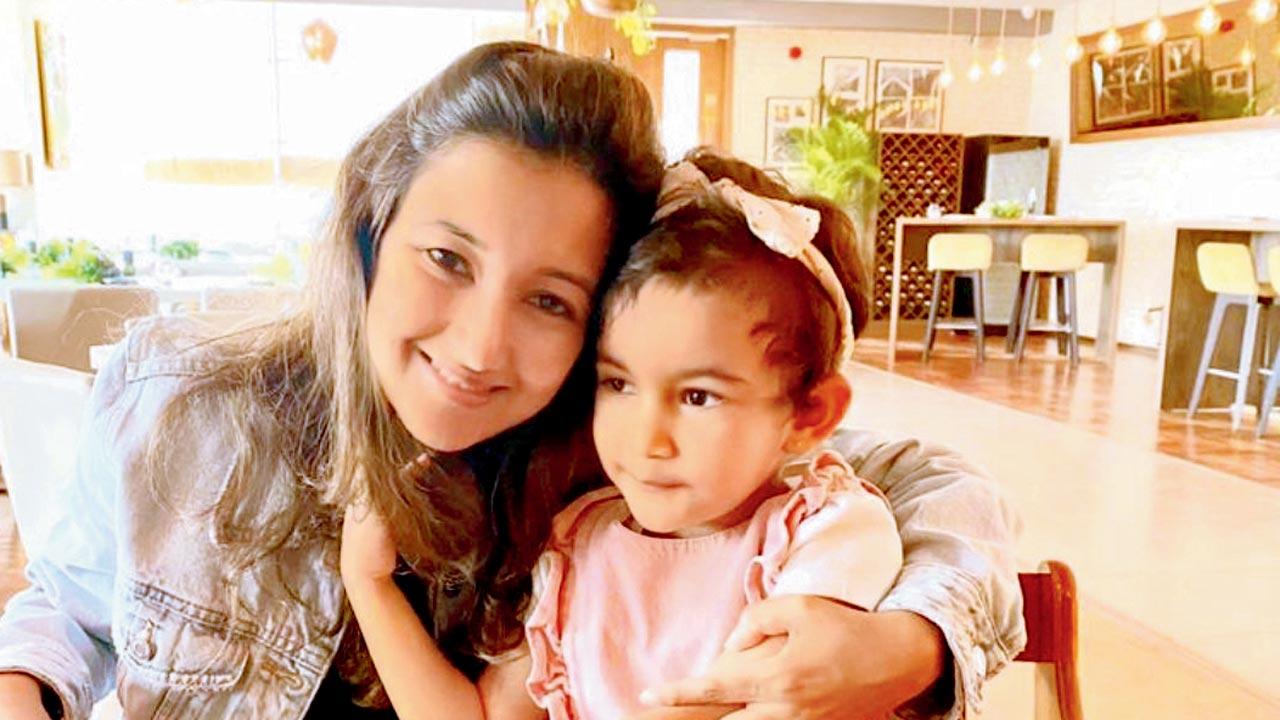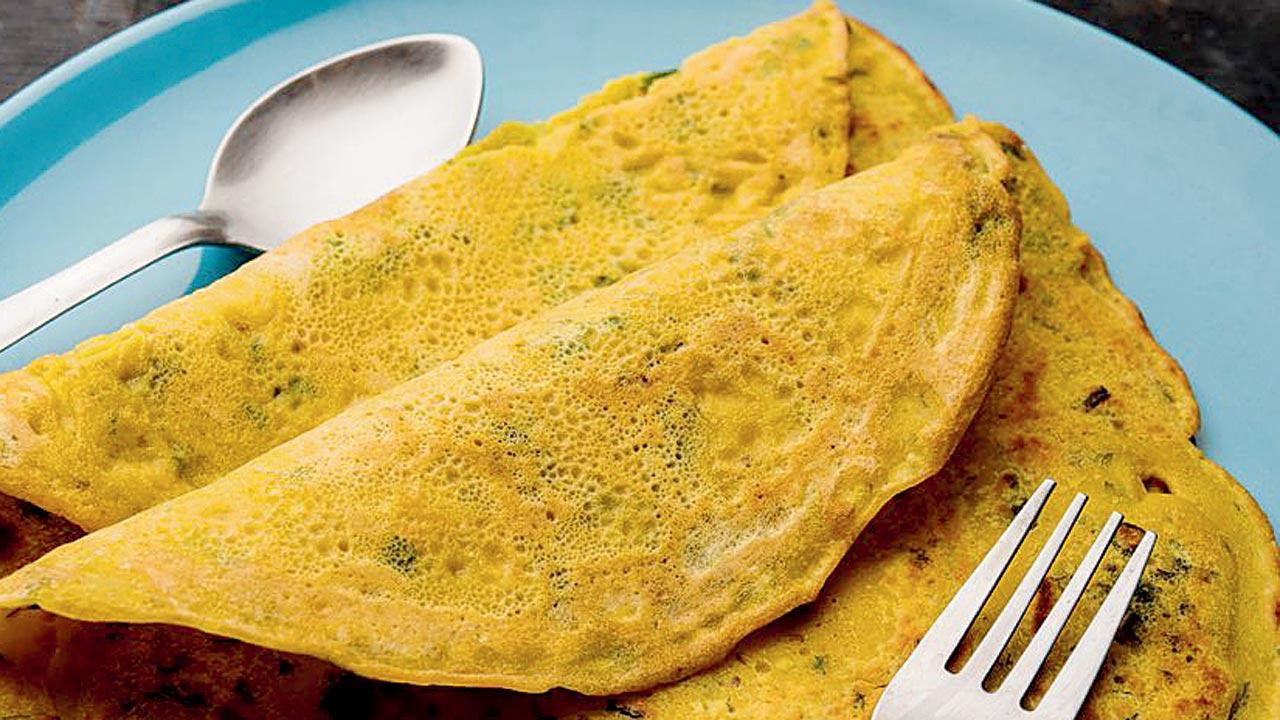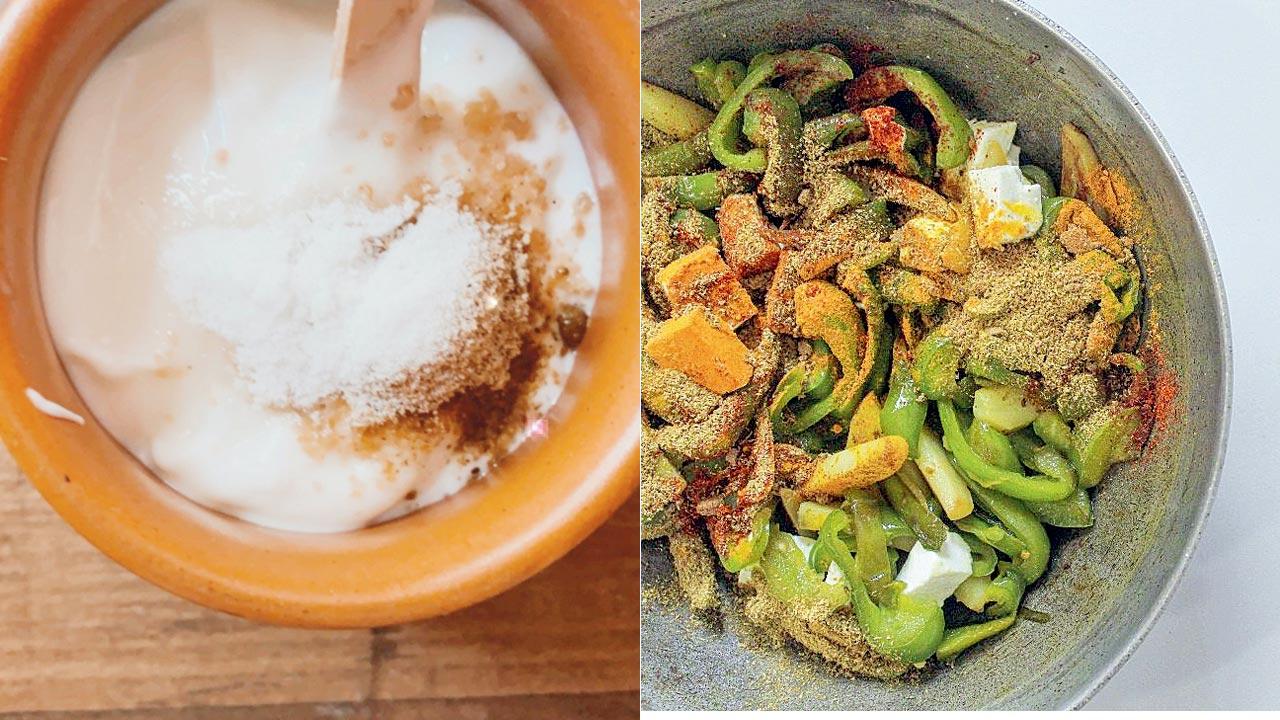As the pandemic rages on, kickstart 2022 for your child with a practical routine and a balanced diet so they can develop a healthy lifestyle

Involve your child in daily cooking decisions and cooking whenever possible
In the few windows during the pandemic, when things seemed normal, entrepreneur Mithila Chirawawala sent her three-year-old daughter Alia for birthday parties and to play areas. However, she was constantly worried if Alia would return with a cold or cough, not from the virus, but from children whose immunity was compromised due to the pandemic. A common concern among many mommies is that being at home for too long might have impacted their immunity. Dr Raashi Khatri-Panjabi, MD, consultant - headaches, pain management and TMJ disorders, PD Hinduja Hospital, Mahim, feels that although we have given our children passive acquired immunity through childhood vaccines, adaptive immunity develops from exposure to other children and the body building its own natural defence from responding to external microorganisms and viruses. “People have been living in a hyper-sanitised bubble. Decreased exposure to infections in children increases the chances of allergies. There is also a large impact of the psychological effect of isolation on the immunity of children, suppressing bodies’ protective immune response.”
Karishma Chawla, functional nutrition coach, too, cites lack of activity, schedules, and discipline, and excess exposure to ready foods as the prime culprits of decreased immunity. “Kids ape elders; many adults went off track in the pandemic with their nutrition and lifestyle. The pandemic demands balance in every way. The easiest way as a parent is to have a single-point focus on wanting your child to build health. Lead by example — embrace the art of healthy eating and living; talk to the child about healthy eating and involve them in daily cooking decisions.”
 Mithila Chirawawala and Alia
Mithila Chirawawala and Alia
Make it real
Chawla says, “Ensure they have whole-foods rich in fibre that help to stabilise blood sugar levels, prevent cravings and take care of the gut. Remember 70 to 80 per cent of the immune system resides in the gut. Show them videos about how refined foods like pasta are digested and absorbed so quickly that they don’t even reach your colon.” She elaborates that complex carbs that are rich in fibre (such as quinoa or amaranth) take time to digest, increases satiety and reach the colon, where fibre is eaten by the bugs living there; they make essential vitamins and immune-building compounds that help lower inflammation.
Get moving
Raksha Lulla, nutrition and lifestyle coach, explains butyrate is a very essential SCFA that is produced in the child’s gut with 60 to 90 minutes of movement, sports or outdoor activities per day. “This is important for immunity, mood and sharpness,” she adds. Panjabi’s six-year-old daughter Sufi is encouraged to spend outdoor time and get adequate sun exposure (even if in a balcony or terrace). She is even made to follow a fixed sleep routine, according to the circadian rhythm.
 Karishma Chawla and Raksha Lulla
Karishma Chawla and Raksha Lulla
On a schedule
Lulla says, “The timing of meals with your biological clock is just as significant as what you eat. Explain it to kids this way: There is a meeting scheduled with your biological clock to meet with your digestive juices, hunger hormones and enzymes between 8 to 9 am, 12 to 1 pm and 6 to 8 pm. Now, if you’re not showing up to this meeting or at least close to these timings with your food, it’s a waste of having a rush of these enzymes and juices. This will always maximise nutrient assimilation and keep acidity, metabolic disorders down. In addition, sleeping and waking up at the same time daily is key to full recovery. The 11 pm to 3 am window for sleep is a must to cover for children to regulate their REM-NREM cycles, for necessary processing of data, dreams and emotions.”
Chawla emphasises the importance of schedules. “Lack of a schedule will lead to missing balanced meals and indulgence in wrong foods that are high in sugar, fat and salt. All this lowers energy levels, increases cravings, leads to lack of focus, diminishes productivity, performance and lowers an individual’s immune system,” she adds.
For this, Dr Panjabi feels it’s important to make meals ceremonial and involve children. “The family eats together at the same, fixed time. If it’s around a festival, we decorate and have fun planning a table set-up. Get your child to make choices and decide a menu for the week.”
 Dr Raashi Khatri- Panjabi
Dr Raashi Khatri- Panjabi
Up the water intake
Dr Panjabi ensures her daughter Sufi has her steel water thermos nearby even while playing, so it’s a reminder to drink up. Water-based vegetables are often included in lunch and there’s salad with every meal. Soups, chaas and lime water are great additions. Chawla suggests consuming plain water or water infused with fruit slices or salad slices or addition of herbs such as basil, buttermilk, coconut water, lime water, chia water to make it interesting for kids. “Set hourly reminders, challenge them by keeping two bottles of a litre each,” she advises.
Turning tables
At the Panjabis’ home, everyone eats in moderation; they don’t label any food as junk. “She is allowed to make her choices and to recognise to stop when she is full. For that as a mom, I have to not worry if she is full after two morsels. I eat all kinds of vegetables in front of her so she learns by example, and is open to trying whatever is home-made including karela. She is not forced to drink milk and chooses to have it plain when she feels like it. We work on introducing healthy bacteria in food to encourage good gut microbiome that will encourage immunity-building. They are so easily found in our Indian kitchens but we miss recognising them. Homemade dahi, chutney, bhakris, fermented food like dhokla and idli are excellent and fun sources of good bacteria.” She also introduces immunity-booster and magnesium-rich foods such as banana, cashew, and nutmeg in milk. “Going by seasonal changes, we include jaggery with ghee, khichdi with ghee, and soups with ginger in cold seasons.”
Chawla suggests preparing a list and a menu, and stocking your kitchen well. “Keep reminders on the phone, and stay away from the TV, computer or phone at mealtimes. Start the meal with a prayer and exchange positive thoughts with each other. Express gratitude towards every person involved in bringing the food to your plate, from the farmers to your mother/cook/caretaker. This gratification goes a long way in healing the body,” she asserts.
Chawla’s children-special diet plan
 Chillas are a healthy brekkie option
Chillas are a healthy brekkie option
On waking: Dried fruits and almonds/skim milk (can add unflavoured protein powder or unsweetened cocoa powder with jaggery; no artificial sweeteners or stevia).
Breakfast at home: Eggs/oats porridge/hot chillas made of jowar/moong dal/red rice/brown rice poha/brown rice and dal dosa /quinoa upma. Note: White rice poha/rava upma /white rice and dal dosa occasionally.
School breakfast: Quinoa pancakes/almond cookies/brown rice pancakes/almond or jowar crust pizzas/coin-sized methi or palak thick chilla/ brown rice and sweet potato cutlet (can add other veggies).
Mid-morning: Fruits and nuts/home-made energy bar
Lunch: Rotis (jowar/bajra/nachni/rajgira) with veggies, dal, salad and curd/buttermilk. Occasionally, add brown rice/brown rice pulao/curd brown rice/millet pulao/white rice.
Evening snacks: Jowar noodles/almond or jowar or bajra crust pizzas/lentil pastas/ quinoa pasta/millet noodles/veg chutney with cheese/butter jowar bread sandwiches/dosa with grated eggs/boiled eggs/sweet potato or pumpkin fries/stuffed potato with veggies and egg (baked)/mashed potatoes. Consume wholewheat sparingly as gluten must be minimised.
Dinner: Soup, veggies and veg paratha/roti and dal/chicken (on comfort)/paneer or soup with chilla.
Quick bites: Home-made energy bars, jowar puffs, jowar chivda, jowar khakhra, puffed rice flakes, or makhana. These are high in sodium or/ and sugar. Consume sparingly.
Lulla’s toddler-special diet plan
 Dahi with hing, kala namak and mishri is a hit with kids; (right) sabzi with paneer and home-made spices
Dahi with hing, kala namak and mishri is a hit with kids; (right) sabzi with paneer and home-made spices
On waking: 150 to 200 ml of cow’s milk (full fat) or fresh fruits.
Breakfast: Millet mixed dosa, grated coconut and jaggery, and roll it up/sweet potato mixed with kulith (horsegram) thin paratha puran poli with milk/jaggery poha/dalia with pepper, milk and sugar.
Lunch: Palak roti/methi thepla with dahi with raisins/dal dalia with vegetables/ragi, spinach and sesame seeds paniyarams with tomato chutney/small paneer or aloo paratha with dahi.
Evening snack: A glass of ragi sattva/savri kheer (barnyard millet kheer)/milk with crushed nut powder/banana/small katori of corn in white butter and salt.
Dinner: Kulith rasam with rice /dal rice /moong khichdi.
 Subscribe today by clicking the link and stay updated with the latest news!" Click here!
Subscribe today by clicking the link and stay updated with the latest news!" Click here!








